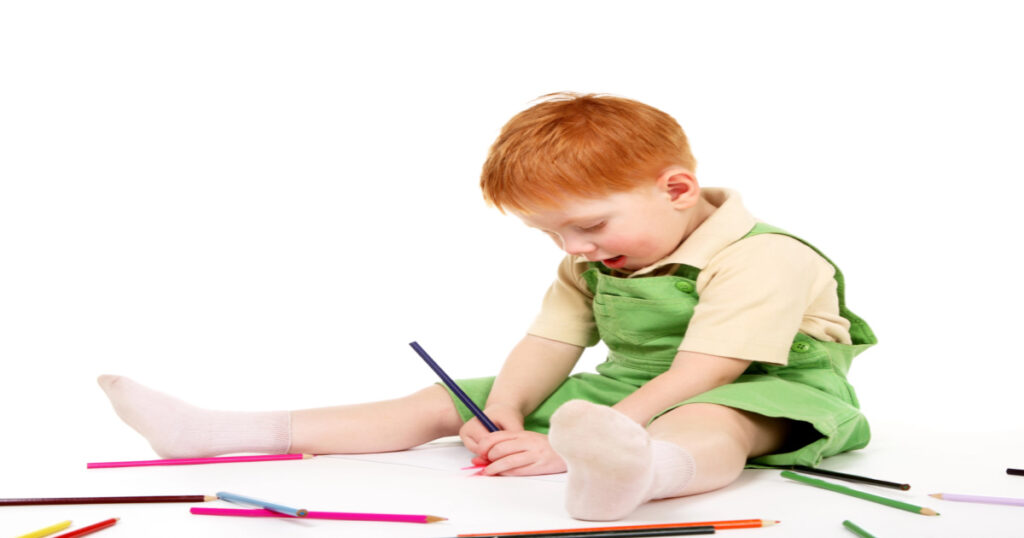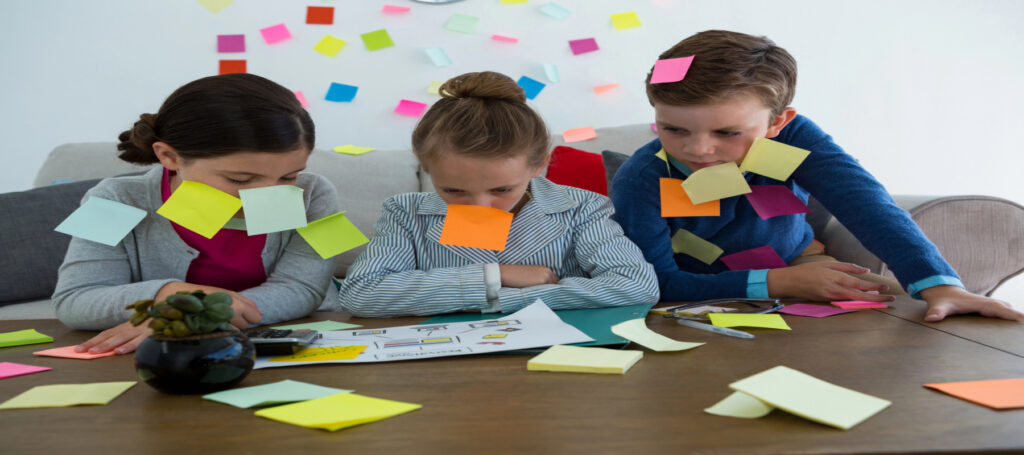
My now six-year-old boy is creative, resourceful, deeply aware, and a total big-picture thinker. I adore him for all of that.
But—let’s be real—he’s also impulsive, easily sidetracked, slow to transition, stubborn as hell, and incredibly skilled at tuning me out. And yes, those traits can seriously test my patience.
For a while, I blamed myself. I thought maybe I had messed up somewhere along the way, that I’d caused the behaviors that made life harder—for him and for me. But the more I’ve learned about how his brain works, the more I’ve been able to understand why he does what he does. And with that understanding has come more empathy, less stress, and a much more encouraging version of myself.
It helps that I’ve lived with many of these same ADHD symptoms too. I get it. And when I started seeing some of his habits not as random quirks or “bad behavior,” but as ways he was trying to help himself, something shifted.
Here are four habits he’s developed to self-regulate—habits I now fiercely support, even if they used to drive me up the wall.
1. Taking Notes Like His Life Depends on It

When he turned five, I noticed something: notes. Everywhere. Sticky notes on doors. A whiteboard by his bed. Printer paper with notes written on them taped to his backpack. His brain moves fast and forgets things even faster—and he knows that. So he writes everything down. What looks like chaos to the outside world is actually his system. His way of staying connected to the things that matter to him.
I used to see it as clutter. Now I see it as brilliance.
2. Making Piles of “Unrelated” Junk
Here’s the thing about my son—he dreams in color. This kid can design a full-scale amusement park in our living room, complete with storyline, ticket system, and pretend concessions. But before the magic happens, the prep stage shows up as boxes and corners piled high with the most random stuff.
Used to drive me nuts.
Now? I get that it’s his process. He’s building something only he can see—until suddenly, we all can. I’ve learned to trust the piles.
3. Chasing Dopamine
7 AM: “Can I have candy?”
7:01 AM: “Can I play video games?”
7:02 AM: “Can I watch TV?”
I hadn’t even said good morning and I’d already said no three times. Same story after school. Same before bed. It used to feel like I was raising a tiny addict.
Turns out, in a way, I kind of am.
Kids with ADHD tend to have lower dopamine levels. And guess what gives you a quick hit? Candy. Screens. Sugar. It’s biology, not bad behavior.
Once I got that, I stopped resenting the asks and started offering alternatives. Now, when he’s reaching for junk or zoning out with a remote, I offer dopamine-boosting alternatives: tickle fights, silly dance parties, yogurt with honey and hemp seeds, or one of his beloved electrolyte popsicles. Sometimes I still say yes to the dark chocolate (75% or higher, because hey—antioxidants).
4. Stepping Away to Recharge

My son isn’t the loudest in the room. He’s not the one bouncing off the walls at birthday parties. He often just wants to hang back and imagine something up on his own. At first, I worried. Is he shy? Is he lonely? Is he missing out?
Nope. He’s regulating.
Crowded, noisy spaces overstimulate him. So he retreats—into drawing, writing, music, or his own vivid imagination. Now, we’ve got creative corners set up all over the house. He’s got his own Alexa to play music and dance, or headphones when he just needs the world to quiet down for a bit.
It’s not avoidance. It’s strategy.
I share all of this because if you’re parenting (or loving) a kid with ADHD, it can feel like you’re always in reaction mode. But if you take a step back and see their behaviors not as obstacles, but as adaptations—they start to make a whole lot more sense.
These kids are intuitive, brave, and already doing the work of regulating in a world that doesn’t always understand them.
Let’s learn from that. Let’s meet them there.
No shame. No judgment. Just curiosity, creativity, and support.
If you’re raising a neurodivergent kid, you’re not alone. And I’d love to hear from you—what strategies have you discovered that help your child regulate, recharge, or thrive? Drop them in the Facebook Group comments. Let’s build a space where we can learn from each other and celebrate the different ways our kids shine.

Leave a Reply